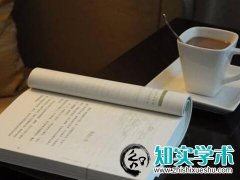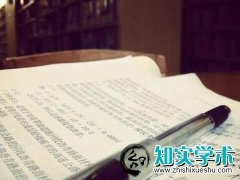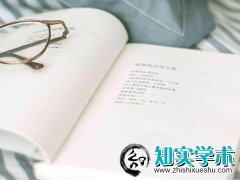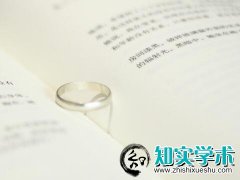-
月刊
发行周期 -
1-3个月
审稿速度 -
北京
出版地方


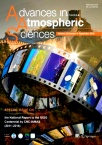
主管单位:中国科学院出版图书情报委员会
主办单位:中国科学院大气物理研究所
国际刊号:0256-1530
国内刊号:11-1925/O4
出版地方:北京
邮发代号:
创刊时间:1984
发行周期:月刊
期刊开本:A4
审稿速度:1-3个月
主编:吕达仁,朱江,Ming XUE
地址:Advances in Atmospheric Sciences
邮编:Advances in Atmospheric Sciences
月刊
发行周期1-3个月
审稿速度北京
出版地方《Advances in Atmospheric Sciences》杂志是由中华人民共和国新闻出版总署、正式批准公开发行的优秀期刊。
《Advances in Atmospheric Sciences》自创刊以来,以新观点、新方法、新材料为主题,坚持"期期精彩、篇篇可读"的理念。
《Advances in Atmospheric Sciences》内容详实、观点新颖、文章可读性强、信息量大,众多的栏目设置,Advances in Atmospheric Sciences公认誉为具有业内影响力的杂志之一。Advances in Atmospheric Sciences并获中国优秀期刊奖,现中国期刊网数据库全文收录期刊。
《Advances in Atmospheric Sciences》现为国家自然科学基金委员会重点资助期刊,是大气科学领域的学术性刊物,坚持“百花齐放,百家争鸣”的方针,努力反映大气科学领域的最新研究成果,及时刊登有创造性的学术论文及评述性文章,报道大气科学领域内的新动向、新问题。国内外大气科学领域著名科学家均向我刊投稿,编委由国内外大气科学领域知名科学家共40多人组成。
万方收录(中)、知网收录(中)、维普收录(中)、CA 化学文摘(美)、统计源核心期刊(中国科技论文核心期刊)、JST 日本科学技术振兴机构数据库(日)、SA 科学文摘(英)、SCI 科学引文索引(美)、CSCD 中国科学引文数据库来源期刊(含扩展版)
中国优秀期刊奖
Articles、Notes and Correspondence、Letters
本站提供增值税专用发票,支付成功后可单独寄出,本站非Advances in Atmospheric Sciences杂志官网,直投稿件请联系杂志社。
一、Manuscript components
Each manuscript should include the following components, presented in the order shown.
1) Title, name, affiliation of each author and corresponding author's email provided on the title page.
2) Abstract. A brief, concise abstract is required at the beginning of each manuscript. The abstract contains a brief account of the background and rationale of the work, followed by a statement of the main conclusions. The abstract is typically 250 words or less in length and is unreferenced. The abstract should be 250 words or less in length. The abstract should not contain any mathematical expressions if possible, should include no footnotes or citations, and should not contain first-person sentence structure.
3) Key words. 4-6 key words should be provided.
4) Text. The text (12-point) should be typesetted in one column, divided into sections, each with a separate heading and numbered consecutively using following format
1. Primary heading
1.1 Secondary heading
1.1.1 Tertiary heading
1.1.1.1 Quaternary heading
5) Acknowledgements. Keep this section as brief as possible by acknowledging only direct assistance in your research and writing. Financial support for the work done should be acknowledged here rather than as footnotes to the title.
6) References. References should be arranged alphabetically without numbering. Citations to standard references in text should consist of the name of the author and the year of publication—for example, Wang (1990) or (Wang, 1990). If there are three or more authors, state the first author’s surname, followed by "et al." and the year of publication—for example, Wang et al. (1990) or (Wang et al., 1990). When there are two or more papers by the same author or authors in the same year, distinguishing letters (a, b, c, etc.) should be added to the year in both the citation in text and the reference listing, for example, Wang (1990a). For multiple citations by one author, separate years by commas, for example, Wang (1989, 1990) or (Wang, 1989, 1990). Separate multiple citations by different authors within the same parentheses by semicolons, for example, (Wang, 1990; Li, 1991) or (Wang, 1989, 1990; Li, 1991).
7) Figure captions. Each figure must be supplied with a self-explanatory caption and all captions should be listed together. Authors should also include captions below the figures for the reviewer copies.
8) Illustrations and tables. Each figure and table should be numbered consecutively and cited specifically in the text by number. All tables should have a title or legend.
二、Formulas
Brief equations or terms set inline in text must be set as a single line expression, if possible. Also please enter them directly from the keyboard if possible. For more complex variables that have both subscripts and superscripts, or have a more complicated operator such as a radical sign, use of the MathType equation editor is recommended.
三、References
References should be given alphabetically without numbering at the end of the paper. References must be complete and properly formatted and only literature cited in the text can be listed.
(1) For typical journal citations it follows the form:
Author(s), publication year: Article title. Journal name, volume, page range.
For example,
Boville, B. A., and J. W. Hurrell, 1998: A comparison of the atmospheric circulations simulated by the CCM3 and CSM1. J. Climate, 11, 1327–1341.
(2) For a book it follows the form:
Author(s), publication year: Book Title. Publisher, total pages.
For example,
Pedlosky, J., 1987: Geophysical Fluid Dynamics. 2nd ed., Springer-Verlag, 710pp.
(3) For a chapter in a book it follows the form:
Author(s), publication year: chapter title. Book Title, Editor(s), Publisher, page range.
For example,
Zhang, R. H., and J. P. Chao, 1993: Mechanisms of interannual variations in a simple air-sea coupled model in the tropics. Climate Variability, D. H. Ye, et al., Eds., China Meteorological Press, Beijing, 236–244.
(4) For a website, it follows the form:
Chou, M.-D., and M. J. Suarez, 1994: An efficient thermal infrared radiation parameterization for use in general circulation model. NASA Tech. Memo. 104606, Vol. 3, 85 pp. [Available online at NASA/Goddard Space Flight Center, Code 913, Greenbelt, MD 20771.]
四、Figures
Vector-based figures (eps., ai., or psd.) should be provided upon acceptance of a paper.
五、Animation
AAS accepts submission with animation. Authors can submit it as supplementary materials via ScholarOne if the video is less than 10 M. The format flv. (or mpeg, avi, etc.) is desired. If the video is more than 10 M, authors are suggested providing a URL of the video for the convenience of the reviewers. The original video can be sent to the Editorial Office upon acceptance of the paper.
六、Copyright information
As a member of Committee on Publication Ethics (COPE), Advances in Atmospheric Sciences conforms to Code of Conducts and Guidelines of the Committee on Publication Ethics and is committed to publishing original work by the named author or authors.
As soon as an article is submitted, authors will be requested to assign copyright of the article (or to grant exclusive publication and dissemination rights) to the publisher (respective the owner if other than Springer). This will ensure the widest possible protection and dissemination of information under copyright laws.

